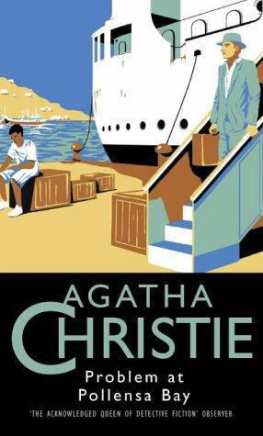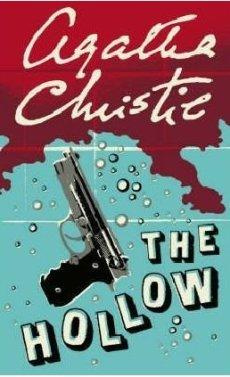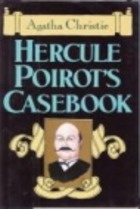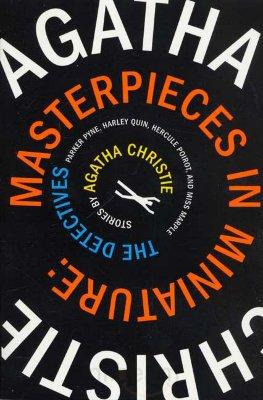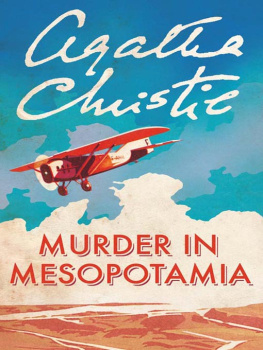Contents

Published by HarperCollinsPublishers Ltd
1 London Bridge Street
London SE1 9GF
www.harpercollins.co.uk
First published in Great Britain by HarperCollinsPublishers 1991
Agatha Christie Problem at Pollensa Bay
copyright Agatha Christie Limited 1991. All rights reserved.
www.agathachristie.com
Cover by designedbydavid.co.uk HarperCollins/Agatha Christie Ltd 2008
Agatha Christie asserts the moral right to be identified as the author of this work.
A catalogue copy of this book is available from the British Library.
This novel is entirely a work of fiction. The names, characters and incidents portrayed in it are the work of the authors imagination. Any resemblance to actual persons, living or dead, events or localities is entirely coincidental.
All rights reserved under International and Pan-American Copyright Conventions. By payment of the required fees, you have been granted the non-exclusive, non-transferable right to access and read the text of this e-book on screen. No part of this text may be reproduced, transmitted, down-loaded, decompiled, reverse engineered, or stored in or introduced into any information storage and retrieval system, in any form or by any means, whether electronic or mechanical, now known or hereinafter invented, without the express written permission of HarperCollins.
Source ISBN: 9780008196455
Ebook Edition December 2016 ISBN: 9780007422753
Version: 2017-09-13
The steamer from Barcelona to Majorca landed Mr Parker Pyne at Palma in the early hours of the morningand straightaway he met with disillusionment. The hotels were full! The best that could be done for him was an airless cupboard overlooking an inner court in a hotel in the centre of the townand with that Mr Parker Pyne was not prepared to put up. The proprietor of the hotel was indifferent to his disappointment.
What will you? he observed with a shrug.
Palma was popular now! The exchange was favourable! Everyonethe English, the Americansthey all came to Majorca in the winter. The whole place was crowded. It was doubtful if the English gentleman would be able to get in anywhereexcept perhaps at Formentor where the prices were so ruinous that even foreigners blenched at them.
Mr Parker Pyne partook of some coffee and a roll and went out to view the cathedral, but found himself in no mood for appreciating the beauties of architecture.
He next had a conference with a friendly taxi driver in inadequate French interlarded with native Spanish, and they discussed the merits and possibilities of Soller, Alcudia, Pollensa and Formentorwhere there were fine hotels but very expensive.
Mr Parker Pyne was goaded to inquire how expensive.
They asked, said the taxi driver, an amount that it would be absurd and ridiculous to paywas it not well known that the English came here because prices were cheap and reasonable?
Mr Parker Pyne said that that was quite so, but all the same what sums did they charge at Formentor?
A price incredible!
Perfectlybut WHAT PRICE EXACTLY ?
The driver consented at last to reply in terms of figures.
Fresh from the exactions of hotels in Jerusalem and Egypt, the figure did not stagger Mr Parker Pyne unduly.
A bargain was struck, Mr Parker Pynes suitcases were loaded on the taxi in a somewhat haphazard manner, and they started off to drive round the island, trying cheaper hostelries en route but with the final objective of Formentor.
But they never reached that final abode of plutocracy, for after they had passed through the narrow streets of Pollensa and were following the curved line of the seashore, they came to the Hotel Pino dOroa small hotel standing on the edge of the sea looking out over a view that in the misty haze of a fine morning had the exquisite vagueness of a Japanese print. At once Mr Parker Pyne knew that this, and this only, was what he was looking for. He stopped the taxi, passed through the painted gate with the hope that he would find a resting place.
The elderly couple to whom the hotel belonged knew no English or French. Nevertheless the matter was concluded satisfactorily. Mr Parker Pyne was allotted a room overlooking the sea, the suitcases were unloaded, the driver congratulated his passenger upon avoiding the monstrous exigencies of these new hotels, received his fare and departed with a cheerful Spanish salutation.
Mr Parker Pyne glanced at his watch and perceiving that it was, even now, but a quarter to ten, he went out onto the small terrace now bathed in a dazzling morning light and ordered, for the second time that morning, coffee and rolls.
There were four tables there, his own, one from which breakfast was being cleared away and two occupied ones. At the one nearest him sat a family of father and mother and two elderly daughtersGermans. Beyond them, at the corner of the terrace, sat what were clearly an English mother and son.
The woman was about fifty-five. She had grey hair of a pretty tonewas sensibly but not fashionably dressed in a tweed coat and skirtand had that comfortable self-possession which marks an Englishwoman used to much travelling abroad.
The young man who sat opposite her might have been twenty-five and he too was typical of his class and age. He was neither good-looking nor plain, tall nor short. He was clearly on the best of terms with his motherthey made little jokes togetherand he was assiduous in passing her things.
As they talked, her eye met that of Mr Parker Pyne. It passed over him with well-bred nonchalance, but he knew that he had been assimilated and labelled.
He had been recognized as English and doubtless, in due course, some pleasant non-committal remark would be addressed to him.
Mr Parker Pyne had no particular objection. His own countrymen and women abroad were inclined to bore him slightly, but he was quite willing to pass the time of day in an amiable manner. In a small hotel it caused constraint if one did not do so. This particular woman, he felt sure, had excellent hotel manners, as he put it.
The English boy rose from his seat, made some laughing remark and passed into the hotel. The woman took her letters and bag and settled herself in a chair facing the sea. She unfolded a copy of the Continental Daily Mail. Her back was to Mr Parker Pyne.
As he drank the last drop of his coffee, Mr Parker Pyne glanced in her direction, and instantly he stiffened. He was alarmedalarmed for the peaceful continuance of his holiday! That back was horribly expressive. In his time he had classified many such backs. Its rigiditythe tenseness of its poisewithout seeing her face he knew well enough that the eyes were bright with unshed tearsthat the woman was keeping herself in hand by a rigid effort.
Moving warily, like a much-hunted animal, Mr Parker Pyne retreated into the hotel. Not half an hour before he had been invited to sign his name in the book lying on the desk. There it wasa neat signatureC. Parker Pyne, London.
A few lines above Mr Parker Pyne noticed the entries: Mrs R. Chester, Mr Basil ChesterHolm Park, Devon.
Seizing a pen, Mr Parker Pyne wrote rapidly over his signature. It now read (with difficulty) Christopher Pyne.
If Mrs R. Chester was unhappy in Pollensa Bay, it was not going to be made easy for her to consult Mr Parker Pyne.
Already it had been a source of abiding wonder to that gentleman that so many people he had come across abroad should know his name and have noted his advertisements. In England many thousands of people read the
Next page
![Agatha Christie [Agatha Christie] Problem at Pollensa Bay](/uploads/posts/book/140367/thumbs/agatha-christie-agatha-christie-problem-at.jpg)


